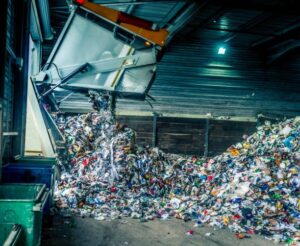When hazardous waste is disposed of incorrectly, it can put garbage collection workers at risk. It can also pollute waterways and poison the soil. It should never be mixed with regular rubbish.
Some items like batteries, chemicals, paint, fluorescent tubes, fire extinguishers and gas bottles cannot be disposed of through residential bin collections. Instead, you can visit a designated place to dump your rubbish in Adelaide. For more information about the hazardous waste disposal rubbish dumps Adelaide, click here.
Hazardous Waste Disposal
 Australians are adept at recycling and composting, but many fail to properly dispose of hazardous waste. Hazardous waste can damage the environment, pollute waterways, and cause harm to wildlife if buried or dumped improperly. It is a primary environmental offence that can result in huge penalties.
Australians are adept at recycling and composting, but many fail to properly dispose of hazardous waste. Hazardous waste can damage the environment, pollute waterways, and cause harm to wildlife if buried or dumped improperly. It is a primary environmental offence that can result in huge penalties.
Chemicals, paints, pool chemicals, batteries and fluorescent tubes should never be in regular garbage. They are toxic to garbage collectors and can contaminate the soil, groundwater and drinking water. Hazardous waste can also corrode pipes and pollute sewerage systems.
Households can bring their hazardous waste to a local safe disposal site for free. The locations are listed on the Green Industries SA website (refer to the link below). Keep containers tightly closed, and, if you don’t have labels, advise depot staff of their contents. If containers are leaking, double-wrap them in leak-proof plastic bags. Avoid transporting hazardous waste in the boot of a car with children or pets, and make sure that you have plenty of ventilation.
Hazardous Waste Collection
While most of us take care to sort our recycling and compositing, we must look after hazardous waste, too. Mixing it with regular garbage is terrible news. It can contaminate soil, harm plant life, and make drinking our waterways unsafe. It also exposes people working in landfills to poisonous chemicals. For more information about the hazardous waste disposal rubbish dumps Adelaide, click here.
Household Hazardous Waste (HHW) is a type of waste that contains toxic chemicals and can be flammable, explosive or corrosive. HHW can be dangerous to the environment and human health unless disposed of correctly.
Some HHW can be recycled, including batteries, paints and cleaners, aerosol sprays, pesticides, fluorescent tubes, and compact fluorescent lamps. If you’re transporting HHW, double-wrap old containers in leak-proof plastic bags to avoid spills. It’s also a good idea to keep them away from children, animals, and flames. When storing HHW, never use food containers or remove labels. Instead, store them in a clean and dry place. If they become corroded, call your local hazardous materials official for instructions.
Hazardous Waste Recycling
Using the proper rubbish disposal methods can help you save money. It can also reduce the amount of waste in landfills. In addition, it helps keep your property clean and free from pests and rodents. Moreover, it improves your curb appeal. However, it is essential to ensure you dispose of the rubbish properly. Putting hazardous waste in regular garbage can harm the environment and people.
You can recycle or dispose of household chemicals at the Heathfield Resource Recovery Centre. This includes batteries, oil, paint, and antifreeze. Make sure that the chemicals are in a secure and leak-proof container. It is also an excellent idea to double-wrap the containers.
Recycling and disposing of hazardous waste is a great way to save the environment. Moreover, it can also earn you money! Some facilities use the waste to produce electricity. They also provide energy-efficient and environmentally friendly appliances. This helps the community to preserve natural resources and reduces the need for new landfill sites. For more information about the hazardous waste disposal rubbish dumps Adelaide, click here.
Hazardous Waste Treatment
Hazardous wastes are dangerous and must be disposed of correctly to protect the environment and keep people safe. If mixed with regular garbage and land in landfills, the chemicals will seep into groundwater and pollute it. They are also dangerous to workers picking up the rubbish and can damage our natural waterways.
The dataset developed for this project was designed to identify key sites and facilities across Australia that receive, store (major facilities only), process, treat and dispose of hazardous waste in liquid, solid and sludge forms.